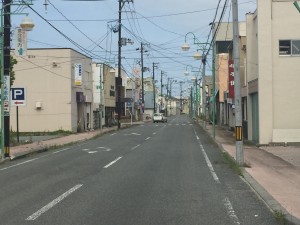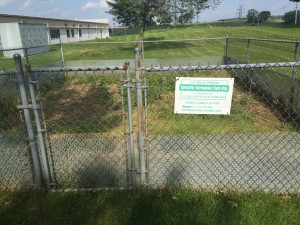After reviewing what we learned both in lectures about the Three Mile Island and Fukushima nuclear accidents and thinking deeply about the experiences of people directly and indirectly affected by these disasters that it is irresponsible to construct nuclear power plants in a place such as Japan, with its abundance of natural disasters such as earthquakes and tsunamis. Such destructive natural phenomena can do nothing but lead to more nuclear accidents such as the one that happened to the Fukushima Daichi plant after it was struck by the 3.11 Tohoku earthquake and its resulting tsunami. Who knows, the next big earthquake (set to hit Tokyo in the next half century) could easily produce more Fukushima-like events if atomic energy plants continue to be restarted as Japan’s current governmental administration would like to be done.
Not only do natural disasters lead to nuclear accidents, but they exacerbate their severity as well as their effects on the populations living near them. Take, for example, the 3.11 tsunami that inundated the Fukushima plant. It caused the failure of the emergency diesel generators that were supposed to keep the reactors cool which in turn led to the meltdowns and explosions of reactors 1, 2 and 3. If the plant had been built in an area away from the immediate dangers of earthquakes and tsunamis, we believe, it would never have had such a catastrophic failure and would almost certainly never have threatened the Japanese people’s well-being. Even if there had been an accident at the plant of the same sort of the one that occurred at Three Mile Island, damage control measures could have very easily been brought in to end such a crisis, as happened at TMI in 1979. However, since earthquakes often destroy roads and cripple other lines of transportation as well as communication, timely and effective response becomes all but impossible, as was seen in the case of Fukushima.

Such exacerbation of a disaster leads to far greater stress being put on populations. In our few interviews with people who had been displaced by the Fukushima disaster, we heard accounts of families being separated physically separated for long periods of time, people being afraid to voice their fears regarding nuclear energy, entire towns being forced to move far away, never to return, and awful living conditions in refugee camps set up in the wake of the disaster. All of these could have been prevented if the government and the nuclear power industry had enough foresight and were not blinded by their pursuit of money that they could see that building power plants that utilize extremely deadly radioactive fuel in one of the most seismically active regions of the world could have grave repercussions.
While nuclear power seems to be one of the more viable alternatives to fossil fuels at the moment, it is imperative that the awesome danger posed by its fuel and waste products be taken into account. If we are to pursue atomic energy as the main alternative to oil, coal and natural gas, we must carefully scrutinize every stage of the process of phasing it in. Building plants in areas with low risk of natural disasters such as earthquakes, tsunamis, tornados and volcanic eruptions should be of the utmost importance. Building them as far away from large population centers should be of high importance as well. Managing nuclear waste is tantamount as well, as it is often stored on-sight at the reactors, adding far more of a risk of widespread contamination if a disaster were to happen.

A garden set up by the managing body of the Three Mile Island nuclear power plant to demonstrate for publicity purposes that fruits and vegetables in the area were safe to eat just after the disaster, now abandoned.
Having a foolproof-as-possible plan to deal with a disaster is essential as well. Getting people out of harms way before a reactor core melts and radioactive gas is vented into the atmosphere should be the top priority. Another essential part of dealing with a disaster of this type is to have complete transparency from the government as well as the managing body of the plant experiencing the disaster. The most common theme we gathered from our interviews both in the United States and in Japan was that of distrust of the government and of the corporation managing the plant. Almost everyone we talked to seemed to think that the powers that be had downplayed the dangers posed by the disasters and falsely told people that they were safe when the opposite was true. Third parties unaffiliated with both the government and managing body of the plant should be brought in to objectively analyze the situation and report to the public.
Thankfully, the nuclear power industry as well as governments learn from the mistakes made with every disaster, ensuring that in the future more steps will be taken to ensure safety when dealing with such a dangerous resource.
To see how people were affected by the Three Mile Island accident, click here.
Read about how people were affected by the Fukushima disaster here.
Click here to learn about the Three Mile Island accident.
To learn about how the Fukushima disaster played out, click here.
To find out more about how nuclear disasters happen, click here.
Clicking here will allow you to view the sources referenced on this website.